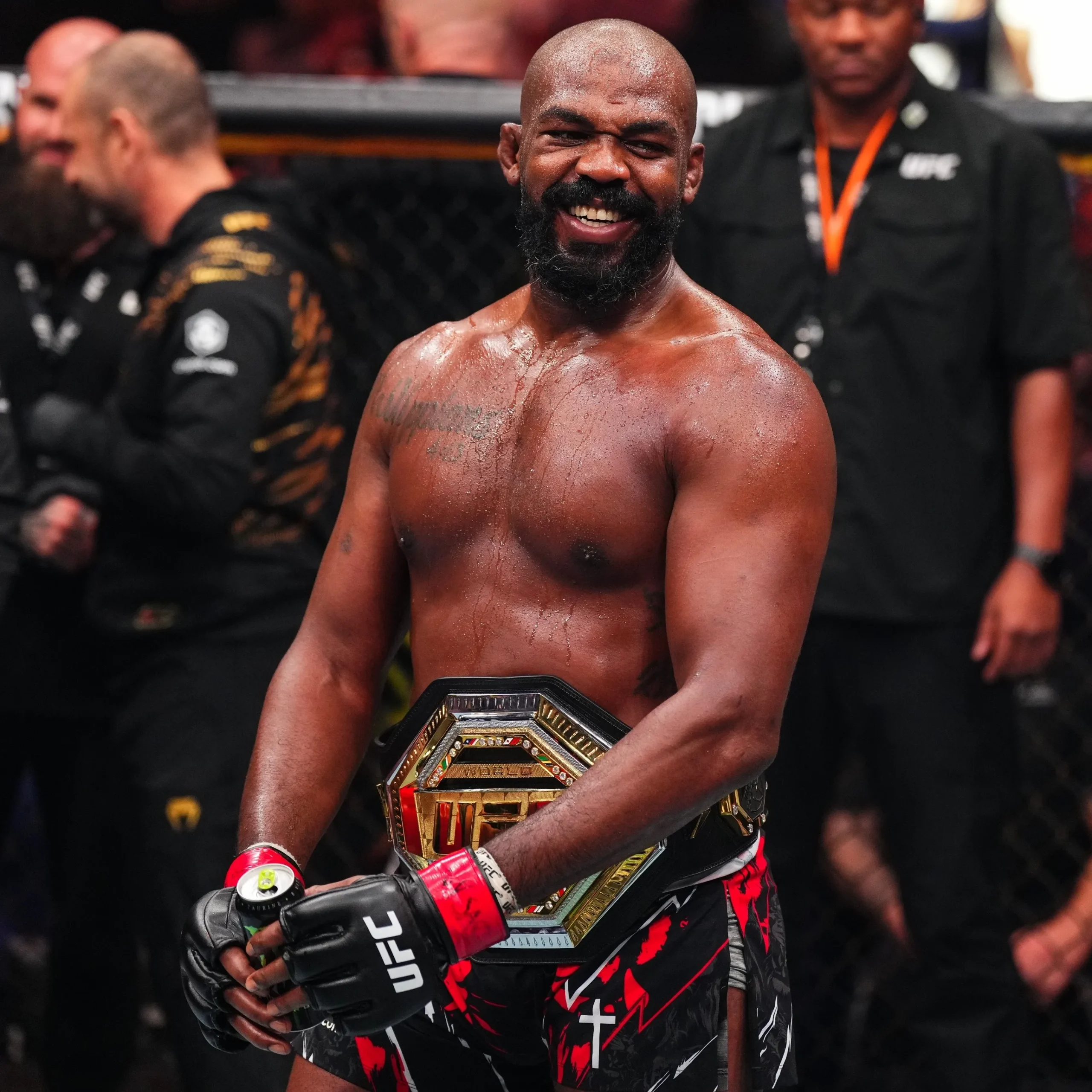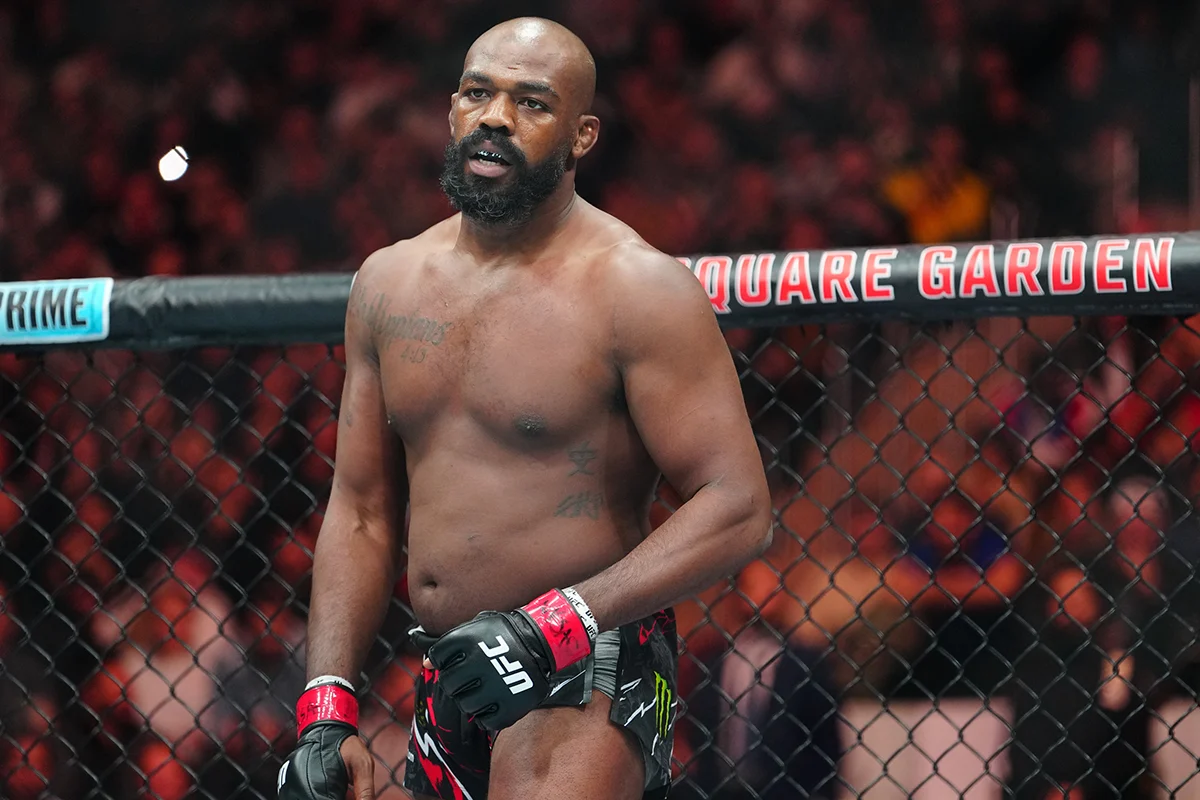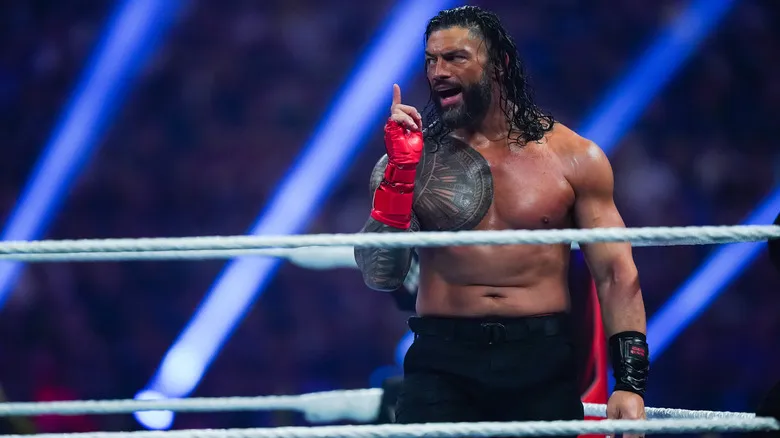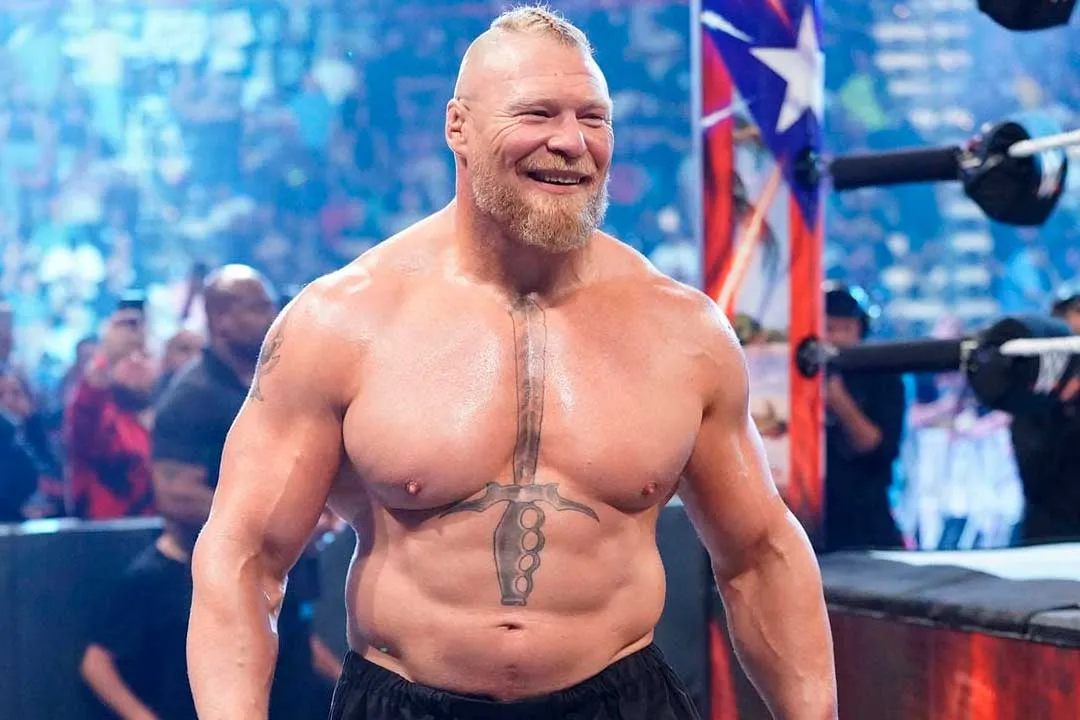

MMA fans shocked: Jon Jones ‘faked retirement’ to avoid Tom Aspinall and made a surprise, volatile comeback – What was his real motive?
Jon Jones, one of the most polarizing figures in UFC history, stunned fans when he announced his return after previously declaring retirement in June 2025. The MMA community was left reeling: was this comeback fueled by a renewed love for fighting, a tactical avoidance of dangerous opponents, or a carefully orchestrated PR maneuver? While Jones rejoined the UFC anti-doping program, opened up the possibility of participating in the high-profile UFC White House event scheduled for June 2026, skepticism runs rampant. Dana White, UFC’s president, questioned the likelihood of Jones participating, claiming it’s “one in a thousand,” even suggesting that Conor McGregor is more likely to headline this historic event.
This article delves into the controversies, criticisms, and speculation surrounding Jon Jones’ return. We’ll explore Chael Sonnen’s outspoken views, the avoidance of Tom Aspinall, and what the future might hold for Jones in the volatile world of MMA.
The Controversial Return: Jon Jones Steps Back into the Spotlight
After months of silence, Jon Jones surprised the MMA world by reversing his retirement decision. By rejoining the UFC’s anti-doping testing program, Jones sent a clear signal: he is physically active, training diligently, and technically eligible for professional competition.
However, the timing and circumstances of his return raised eyebrows. Jones did not announce any immediate fights or opponents. Instead, speculation swirled around the upcoming UFC White House event, a politically charged spectacle set to celebrate the 250th anniversary of American independence. While the event promises massive viewership and unprecedented media coverage, Dana White expressed doubt about Jones’ commitment, suggesting that the probability of him participating was extremely low.
Chael Sonnen Critiques Jones’ Strategy
Veteran MMA fighter and analyst Chael Sonnen didn’t hold back. Sonnen criticized Jones’ approach as both puzzling and suspicious. He emphasized that while Jones claimed he was “not retired,” his avoidance of Tom Aspinall, a rising British heavyweight, hints at a deeper strategy beyond mere preparation or enthusiasm for fighting.
Sonnen stated:
“If Jon says he’s returning but isn’t injured or sick, he’s just avoiding Tom Aspinall—that’s strange. He’s acting like the retirement never happened.”
This comment has fueled speculation that Jones’ comeback may be as much about optics and strategy as it is about actual competition. Sonnen’s observations underscore a recurring theme in Jones’ career: a careful balancing act between maintaining his dominance in the sport and managing risks from elite opponents.
Tom Aspinall: The Avoided Challenge
Tom Aspinall has rapidly become a top contender in the UFC heavyweight division. Known for his explosive striking and formidable grappling, Aspinall represents a legitimate threat to Jones’ legacy if a matchup were to occur.
Jones’ apparent reluctance to face Aspinall has raised concerns among fans and analysts alike. Questions linger: Is Jones’ return motivated by a desire for high-profile exposure rather than sporting competition? Is he strategically avoiding a risky opponent to preserve his undefeated aura? The scenario paints a complex picture of a fighter who is both revered and mistrusted by the MMA community.

Dana White’s Skepticism: “I’ll Believe It When I See It”
UFC president Dana White has witnessed the full spectrum of Jon Jones’ career, from triumphant victories to controversial missteps. White’s skepticism about Jones’ return is grounded in past experiences: the delay in unifying the heavyweight title with Tom Aspinall, injuries, and Jones’ prior flirtations with retirement.
White’s comments highlight a broader issue: can the UFC plan events and divisions around a fighter whose commitment is unpredictable? For the organization, Jones’ return is both a potential boon and a logistical headache. A highly marketable fighter could draw massive pay-per-view numbers, yet uncertainty around actual participation threatens event planning and fan expectations.
Fan Reaction: Between Shock and Betrayal
Social media erupted with mixed reactions following Jones’ announcement:
-
Some fans welcomed the return, eager to see one of the sport’s greatest fighters back in action.
-
Others criticized Jones for what they perceive as emotional manipulation, accusing him of faking retirement to dodge riskier fights.
One popular sentiment circulating online reads:
“Classic Jon Jones—he waits for Tom to slip, then swoops in. The fans are the pawns in his game.”
This backlash reflects a larger pattern: despite his undeniable talent, Jones’ career has been punctuated by controversies that challenge his reputation and fan trust. The recent retirement reversal adds fuel to the fire, questioning whether his actions are motivated by sport, money, or media attention.
UFC White House 2026: Opportunity or PR Stunt?
The proposed UFC White House event represents a unique platform. A politically charged, widely broadcast spectacle would offer Jones unprecedented visibility and potential financial rewards. Participation could solidify his legacy in an unusual and dramatic fashion.
However, the event also poses significant risks. Skeptics argue that this move could be primarily for show—a calculated PR effort to maintain relevance rather than a genuine return to competitive fighting. Jones’ historic use of media, controversy, and timing aligns with this interpretation, raising the question: is this a fight for legacy, or a fight for attention?
The Business and Strategy of MMA Comebacks
Jones’ “return” must also be viewed in the context of MMA business dynamics. High-profile fighters often leverage retirement announcements to:
-
Boost fan engagement and nostalgia.
-
Create leverage in negotiations for higher pay-per-view shares.
-
Increase sponsorship and endorsement opportunities.
By announcing a comeback without an immediate fight, Jones keeps both fans and UFC executives guessing, preserving his bargaining power while testing public interest. Sonnen’s criticism highlights that strategic avoidance of certain opponents, like Aspinall, might be a calculated business move rather than a sporting decision.
What Happens If Jones Actually Fights Again?
Several potential outcomes could unfold:
-
Matchup with Tom Aspinall:
-
Victory would cement Jones’ legacy.
-
Defeat could damage his reputation irreparably.
-
-
Participation in UFC White House Event:
-
High-profile but potentially low-competition fight.
-
Maximizes media coverage and revenue but invites criticism.
-
-
Safe Opponent Strategy:
-
Avoids risky matchups, preserves reputation, but reduces sporting credibility.
-
Each scenario carries both opportunity and risk, creating a complex decision matrix for Jones and the UFC.
If Jones Stays “Retired”
Should Jones choose not to fight, the implications are equally significant:
-
Legacy Impact: Fans may remember him for inconsistency and manipulative behavior rather than dominance.
-
UFC Heavyweight Division: New contenders like Aspinall and Sergei Pavlovich will rise to prominence, leaving Jones as a relic of past glory.
-
Fan Trust: The MMA community could become skeptical of any future announcements, questioning the motives behind public statements.
Psychological Perspective: Why Top Athletes Struggle with Retirement

Athletes at the pinnacle of their sport often face challenges when stepping away. For Jones, fighting has been integral to his identity for over a decade. Stepping away from the limelight may feel like losing a part of himself.
However, critics argue a less flattering interpretation: Jones thrives on attention and controversy. Retirement, real or staged, becomes another tool to maintain relevance in a highly competitive media environment.
Conclusion: Jones’ True Motive Remains a Mystery
Jon Jones’ return to UFC activity raises more questions than it answers. Is he genuinely motivated by a love of fighting, or is he using strategic avoidance, media hype, and high-profile events to maintain influence and income?
Critics like Chael Sonnen and skeptics like Dana White highlight the uncertainty surrounding Jones’ true intentions. Fans are left questioning whether his return is authentic or a carefully curated narrative designed for attention and advantage.
One thing is clear: in the unpredictable world of MMA, Jon Jones continues to dominate discussions—not only for his fighting skills but also for the drama and speculation he generates. Whether hero or manipulator, his presence is impossible to ignore, and the MMA community will watch every move closely as he navigates this controversial comeback.


















